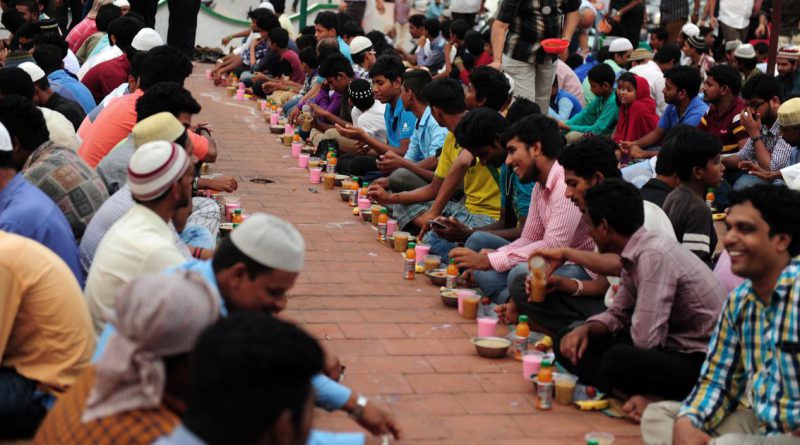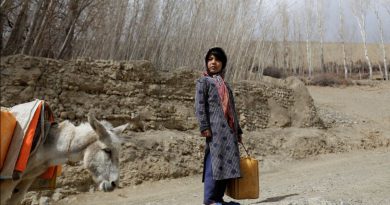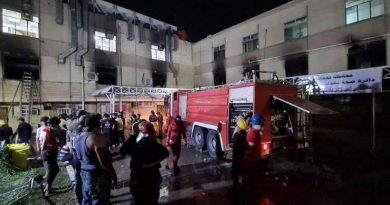OPINION: Beyond Worship—When It Becomes a Burden on Others
True devotion is measured not only by how we pray, but also by how we uphold the dignity of our surroundings
As the crescent moon of Ramzan 2025 fades, we reach the conclusion of a deeply spiritual journey. This is a time of gratitude, renewal, and profound introspection. We have fasted, prayed, given charity, and sought closeness to Allah. But have we also paused to reflect on the unintended impact of our worship on those around us? Have our actions, meant to bring us nearer to God, inadvertently created hardship for others?
Too often, our religious enthusiasm spills into public life in ways that disrupt daily routines. Our devotion should be a source of harmony, not inconvenience. If our prayers, gatherings, and celebrations cause public distress, are we truly embodying the values of Islam?
The Changing Landscape of Ramzan: Congested Mosques and Blocked Roads
During Ramzan, our mosques transform overnight. Once sparsely filled, they overflow with worshippers, forcing many to pray on the streets, blocking traffic, and creating chaos. Hasty parking of bikes and cars worsens the problem, making already narrow lanes impassable. In our eagerness to fulfill religious obligations, do we pause to consider the inconvenience to pedestrians, emergency vehicles, or those simply trying to pass through?
The moments before Iftar should be filled with gratitude and calm. Yet, in many areas, they bring chaos. People rush to buy food, crowding markets and streets. Roadside Iftar parties block pedestrian paths and disrupt traffic. Worse, we often leave behind a trail of discarded plastic plates, cups, and food waste, turning our surroundings into a mess. Is this the discipline and cleanliness Islam teaches?
Taraweeh prayers are among the cherished practices of Ramzan. But when held in public spaces or amplified over loudspeakers, they disturb those seeking rest. In the last ten nights, Qiyam-ul-Layl extends into the early hours, further disrupting neighbors. The Prophet (peace be upon him) instructed us to lower our voices in prayer if it might disturb others. If even Quranic recitation should be quieted for consideration, should we not rethink how we conduct our night prayers?
Ramzan is a time of heightened generosity, with many distributing ration kits, Zakat, and food. Yet, unorganized charity efforts often create overcrowding, long queues, and public disorder. A well-intended act of kindness should not lead to chaos or distress.
Laylatul Qadr is a night of immense spiritual reward, but for some, it has become an excuse for reckless behavior. Youth engaging in dangerous bike stunts force authorities to close flyovers and deploy extra police personnel. What should be a night of devotion instead places an undue burden on law enforcement. Staying awake in worship should not translate into actions that harm public order.
Islamic Teachings on Consideration and Responsibility: Respecting Public Spaces
The Prophet (peace be upon him) explicitly forbade blocking public pathways for prayer. A sahih hadith graded by Albani highlights the importance of keeping pathways clear. Worship should not come at the cost of inconvenience to others.
The Quran instructs us to balance our voices in prayer (Surah Al-Isra 17:110). If even Quranic recitation should be kept moderate, how much more should we be mindful of loudspeakers at night?
The Prophet (peace be upon him) said, “A Muslim is one from whose hands and tongue other Muslims are safe.” (Sahih Bukhari). Our worship should reflect this principle, ensuring that our presence in public spaces does not become a source of hardship for others.
Islam mandates respect for neighbors. Disturbing their sleep with loud prayers is not an act of devotion but of negligence. We must ask ourselves: are we embodying the spirit of Ramzan if our actions cause distress?
Faith and Civic Responsibility
Islam is not just about personal worship but also about our duties to society. Our faith calls us to be disciplined, just, and considerate. This aligns with laws meant to maintain public order, including:
• Noise Pollution (Regulation and Control) Rules, 2000 – Limits loudspeaker use, especially at night.
• Motor Vehicles Act, 1988 – Prohibits obstructing roads and pathways.
• Section 133 of CrPC – Prevents public nuisance and unauthorized gatherings.
The Quran reminds us:
“O you who have believed, fulfill your contracts.” (Surah Al-Ma’idah 5:1)
This extends to our social contracts—upholding laws that govern noise control, traffic management, and public safety.
Striking a Balance: Worship with Wisdom
Ramzan should deepen our connection with Allah while strengthening our role as responsible members of society. We can fulfill our religious duties without creating disorder. Practical changes include:
• Organized Worship: Mosques should manage crowd control, ensuring that prayers do not spill into streets.
• Eco-Friendly Iftar: Community meals should be planned with waste management in mind, minimizing litter.
• Responsible Taraweeh: Limiting loudspeakers and ensuring prayers do not disrupt neighbors.
• Structured Charity: Distributions should be well-coordinated to avoid unnecessary crowding.
• Discouraging Reckless Behavior: Community leaders must actively address youth engaging in dangerous activities during Laylatul Qadr.
True devotion is measured not only by how we pray, but also by how we uphold the dignity of our surroundings and the well-being of those around us.
As we step beyond Ramzan, let our worship continue—not just through prayer, but through our everyday actions of respect, discipline, and kindness.



